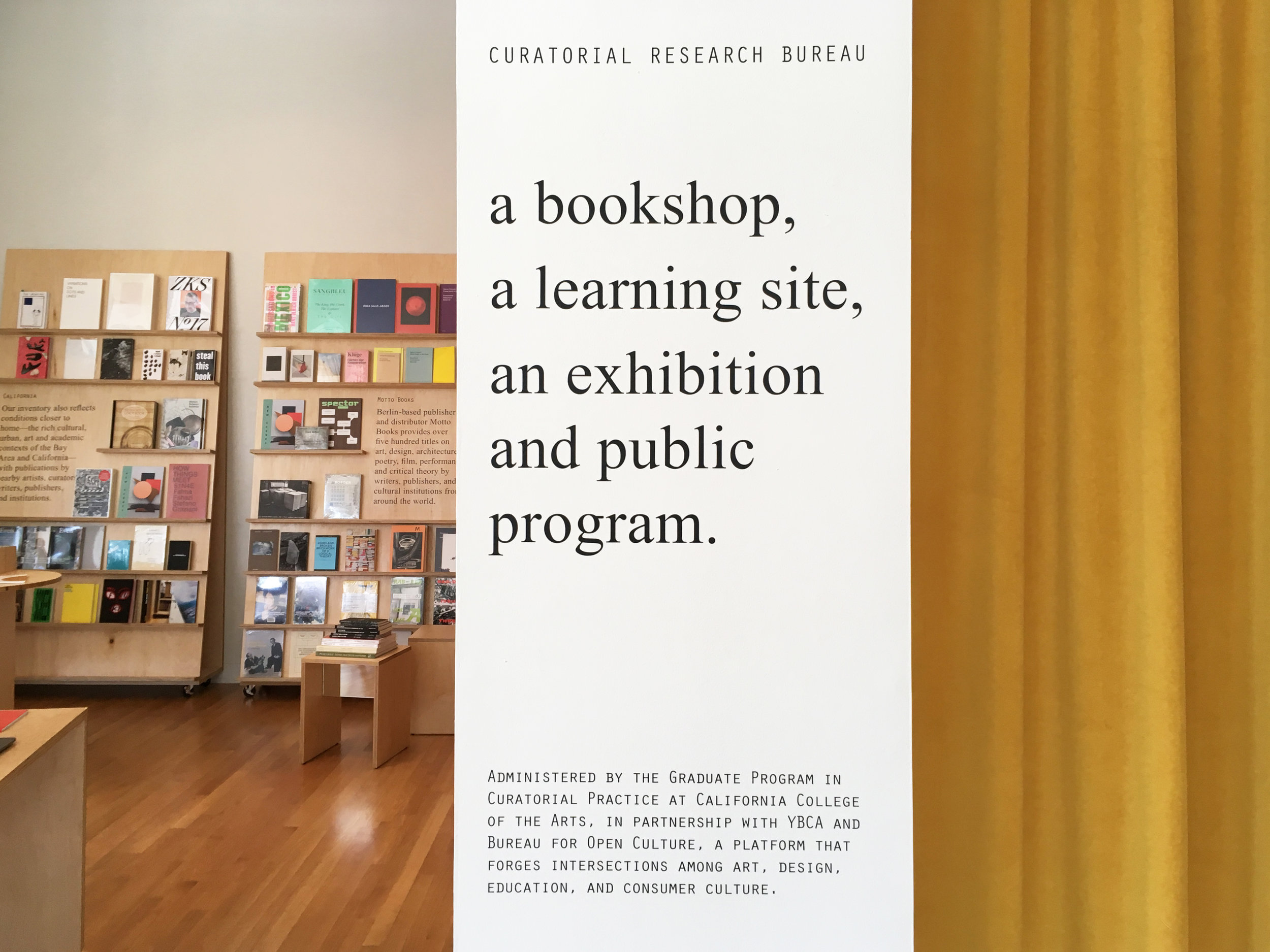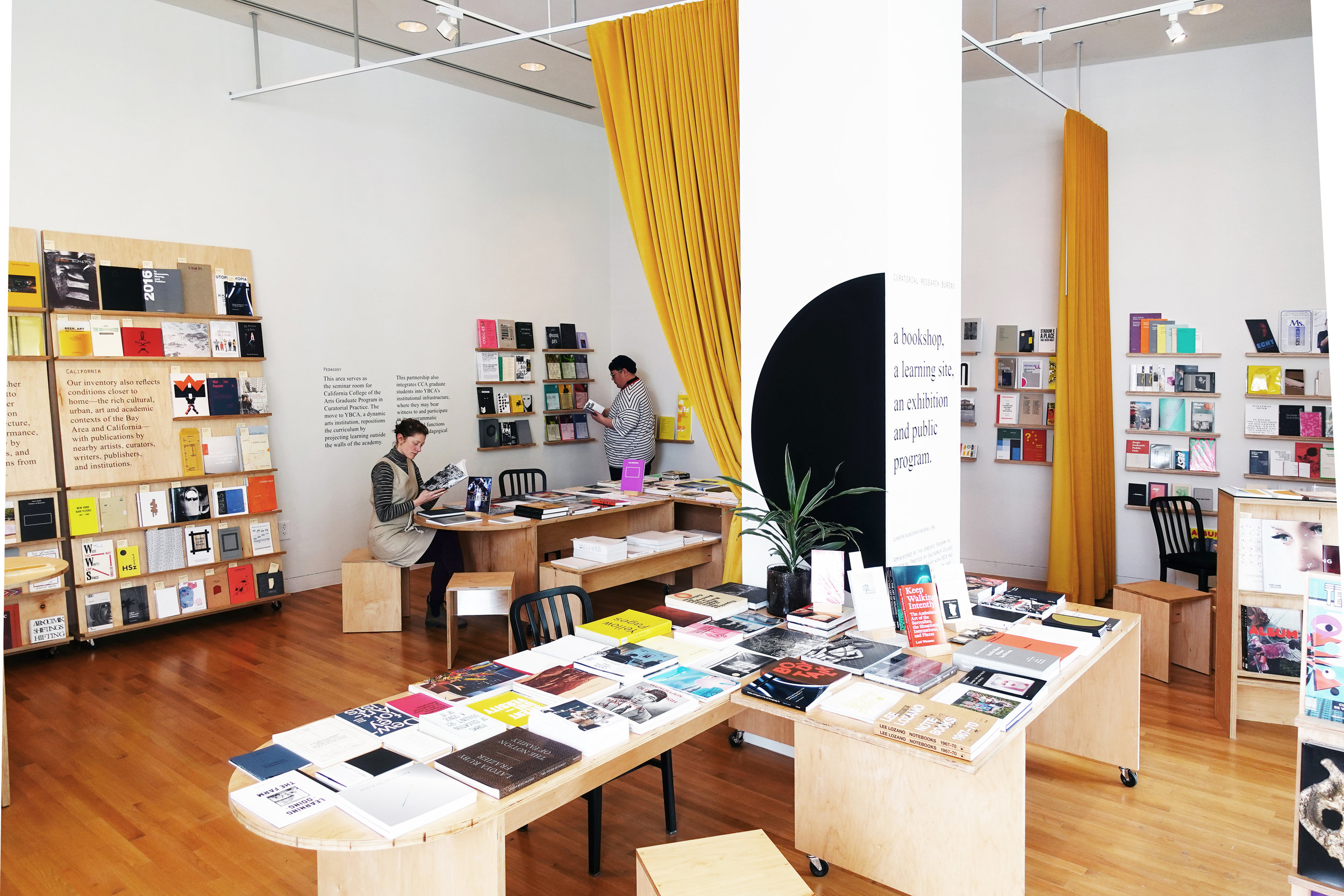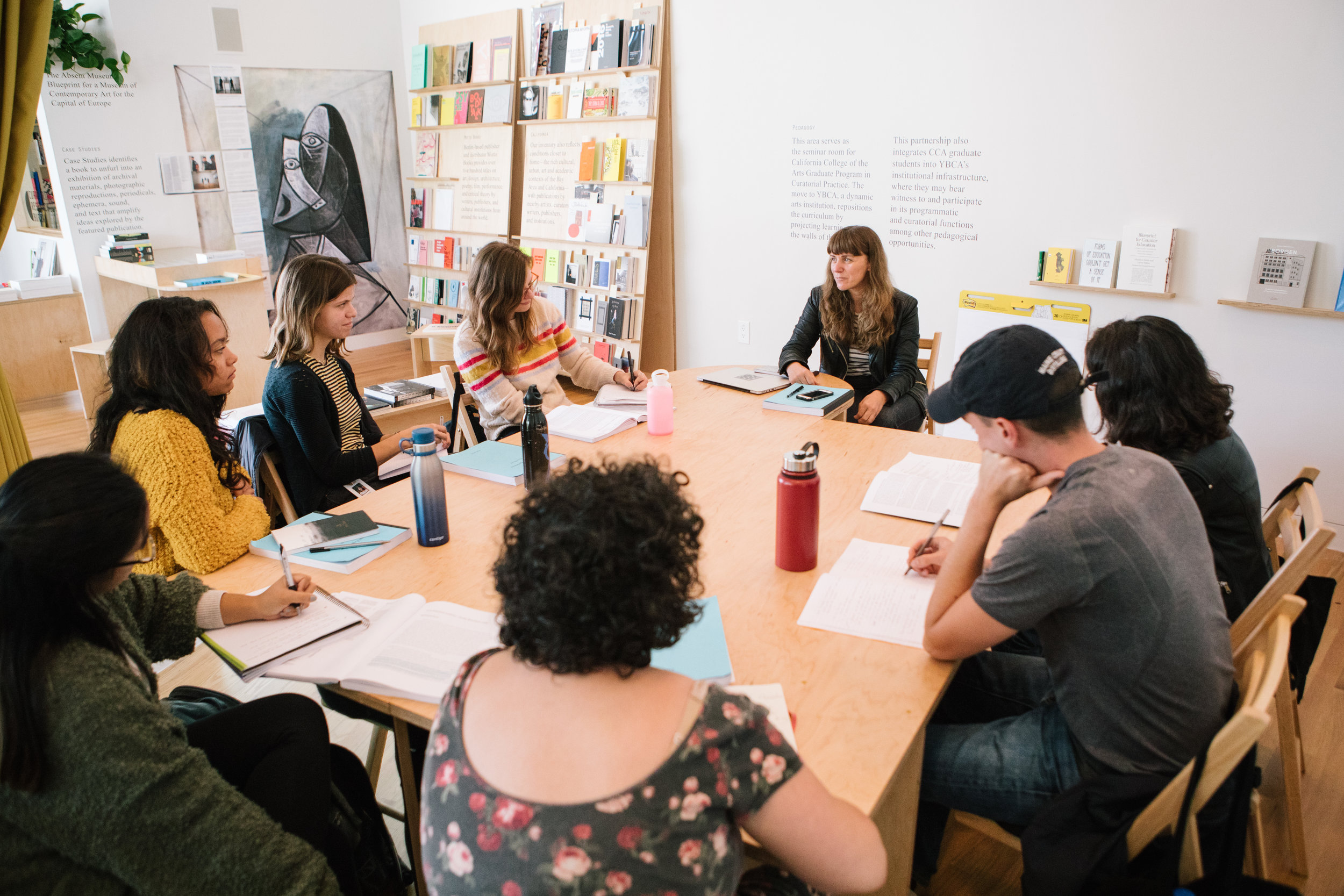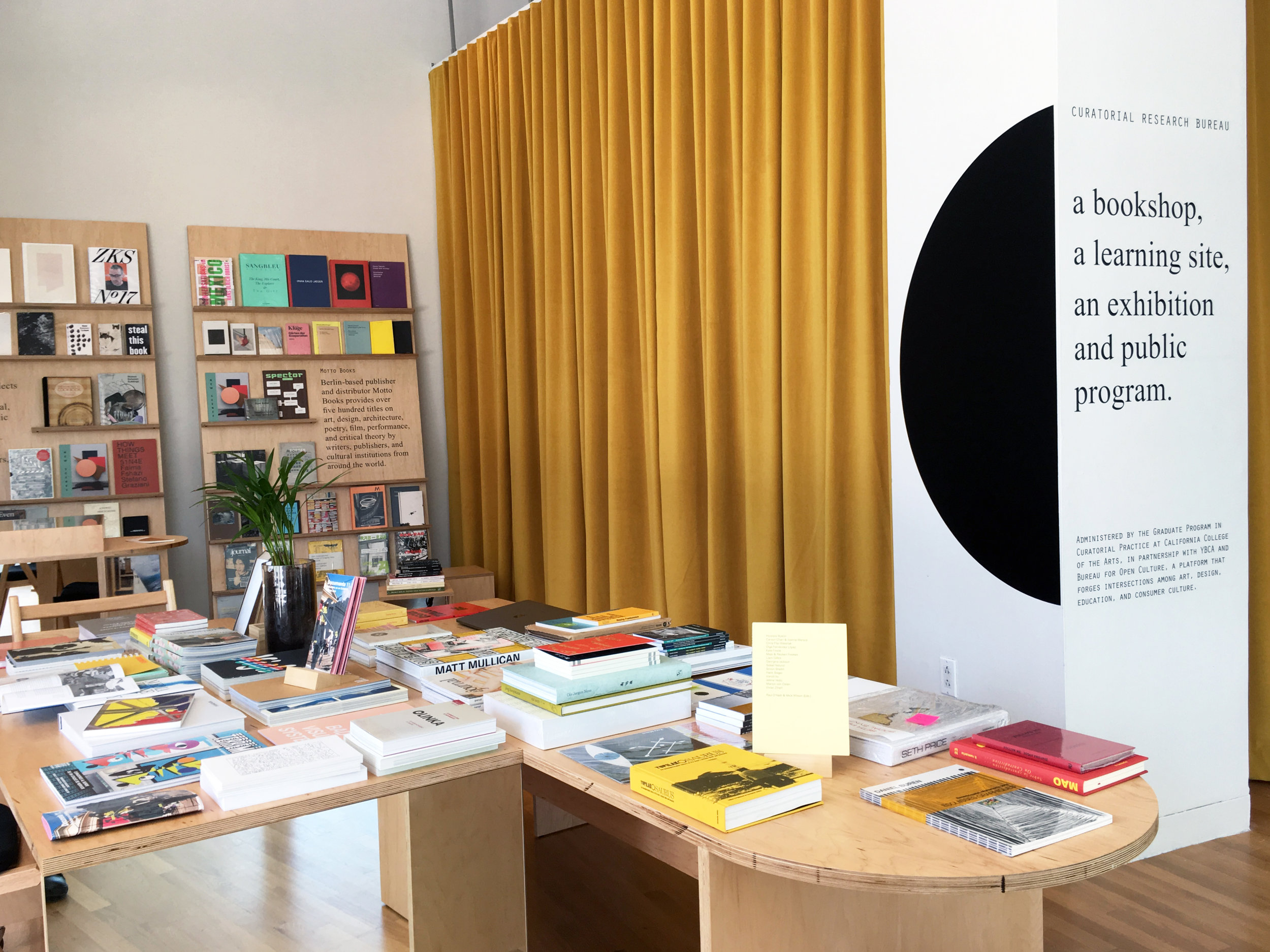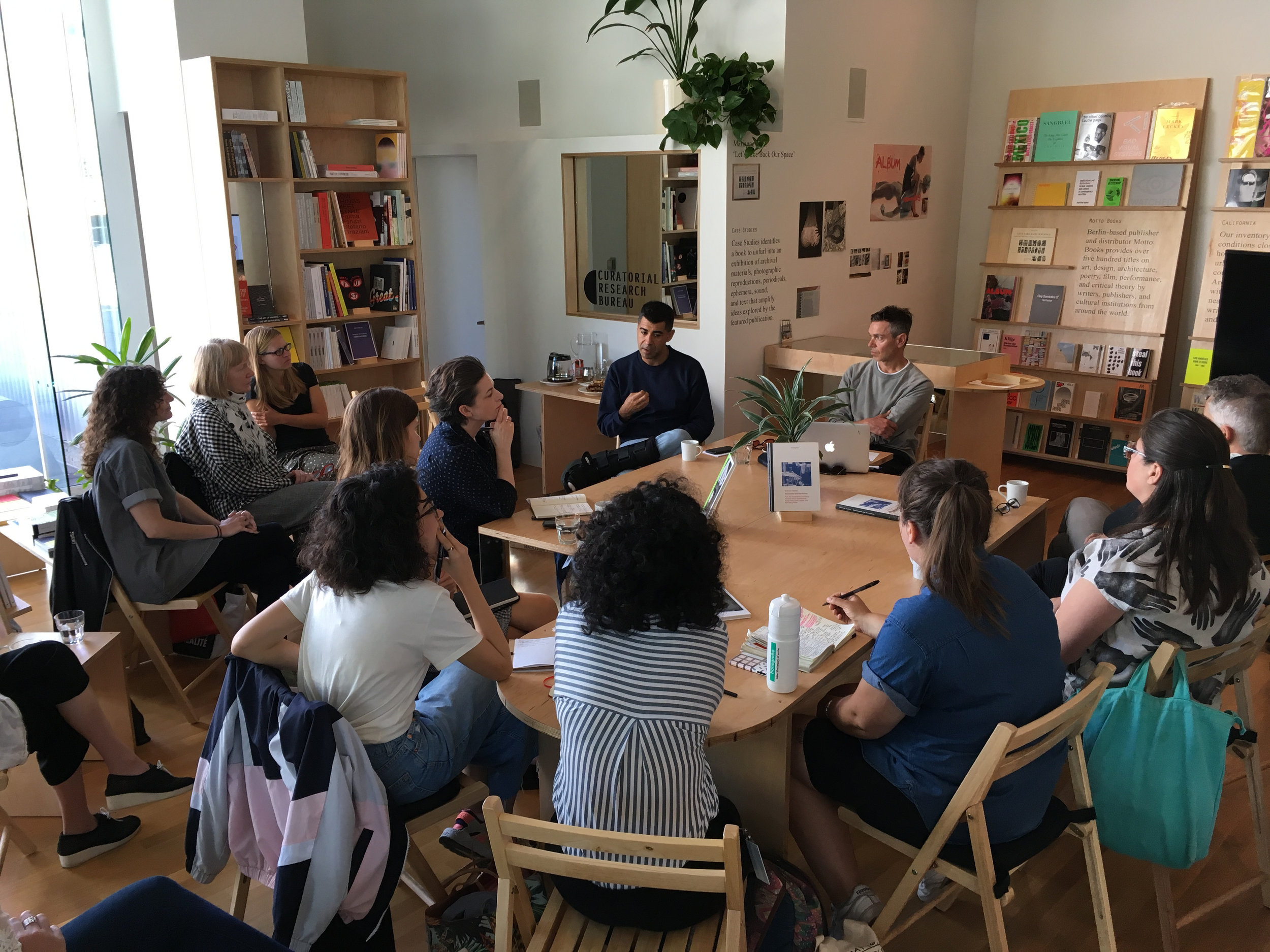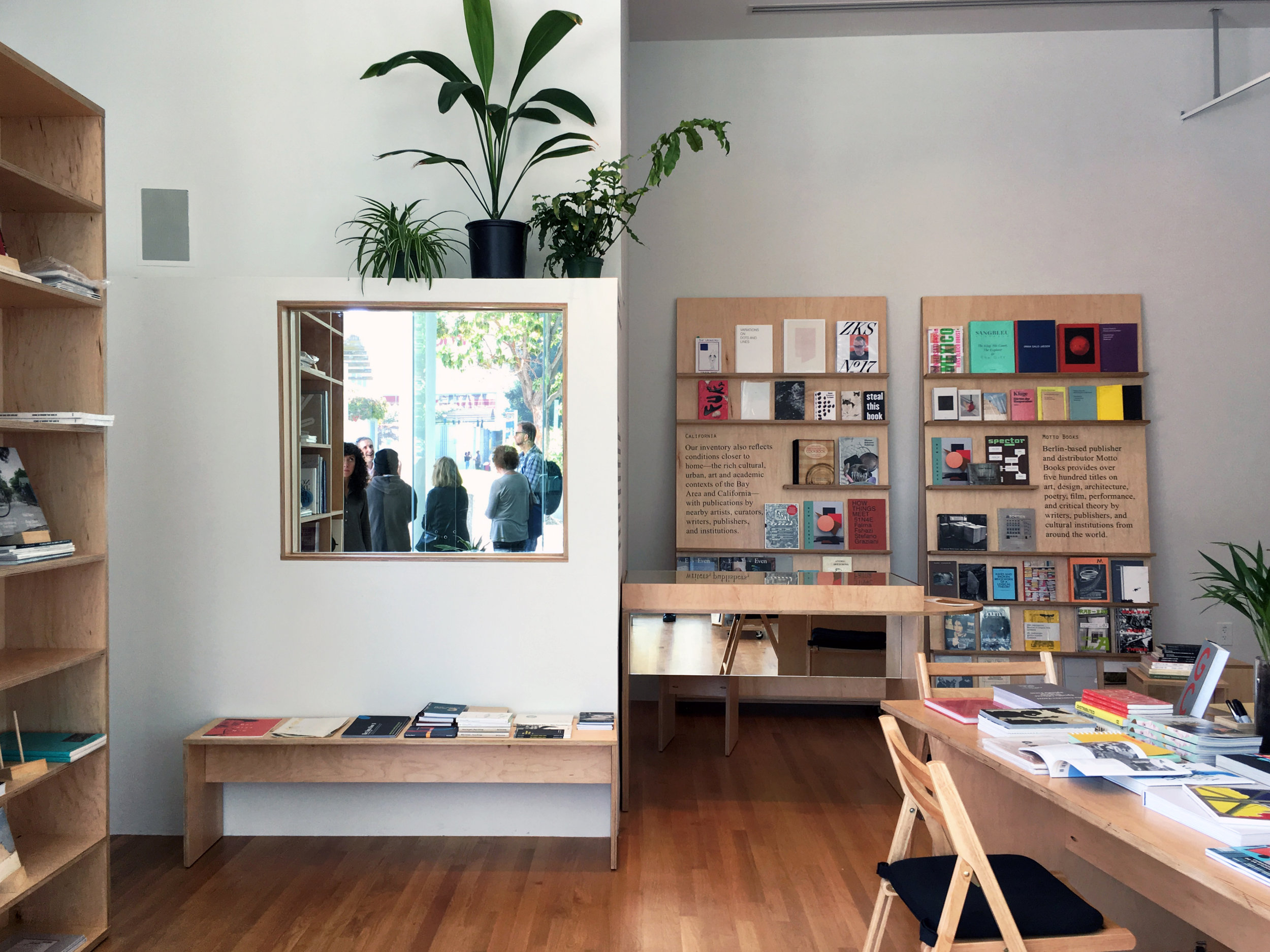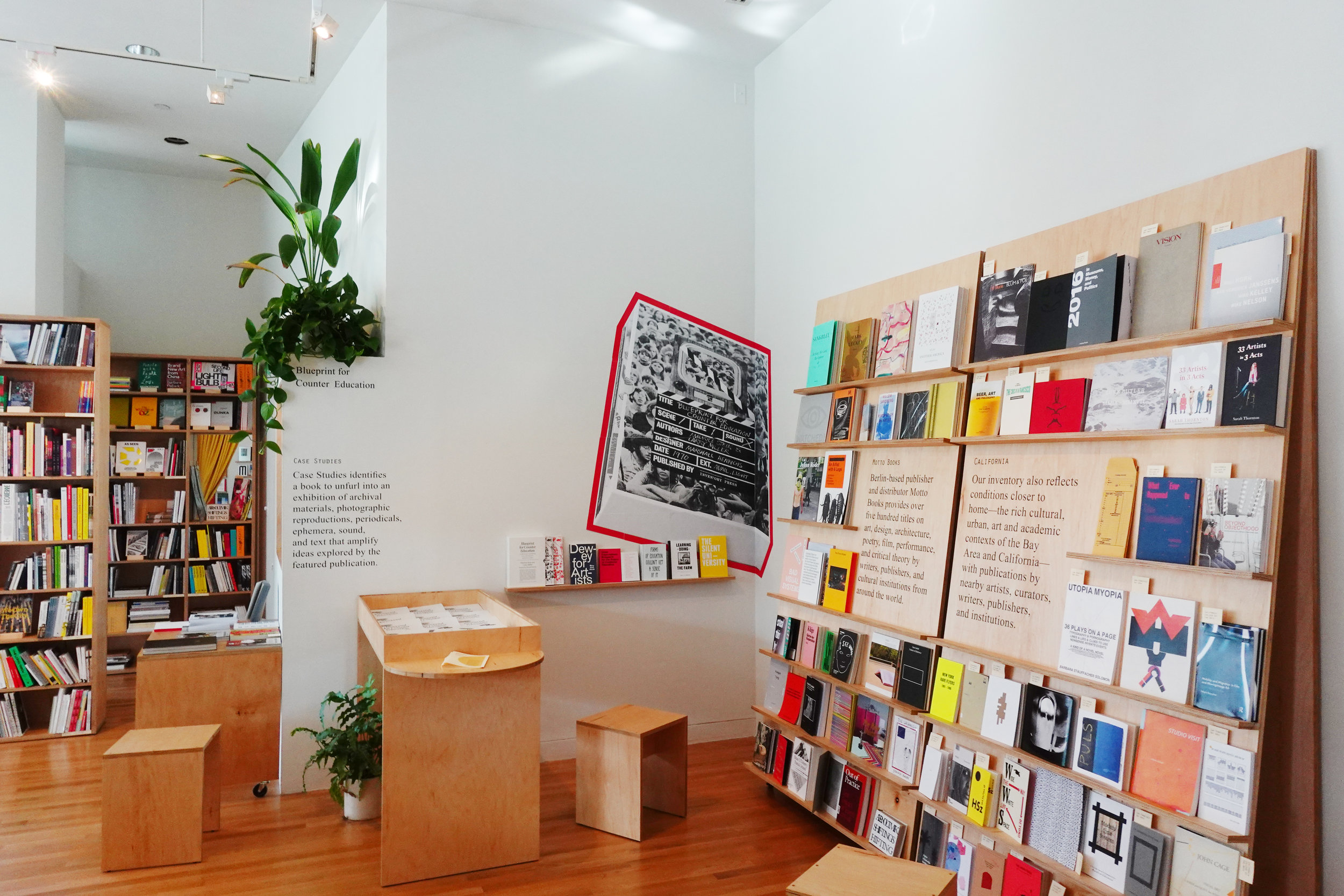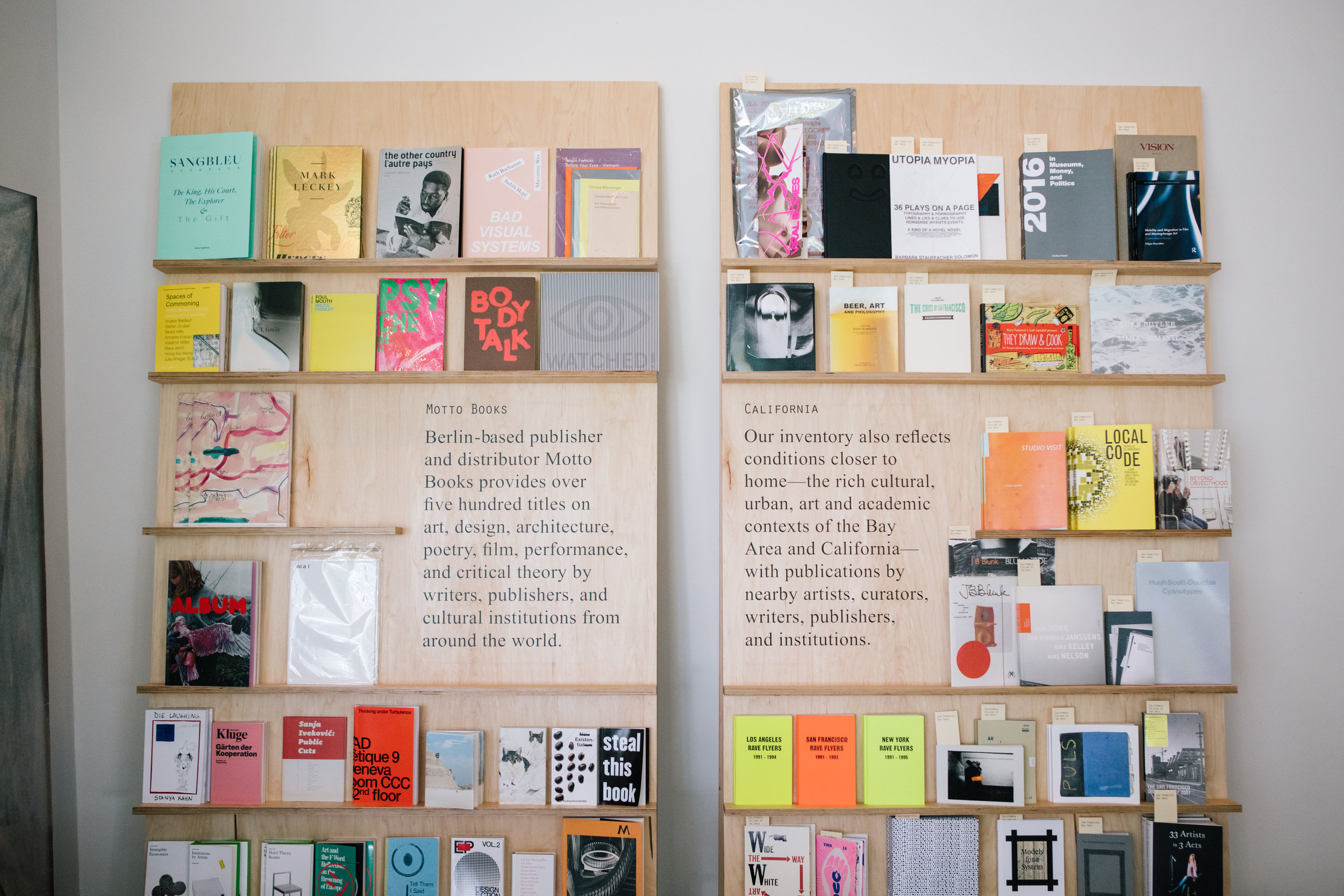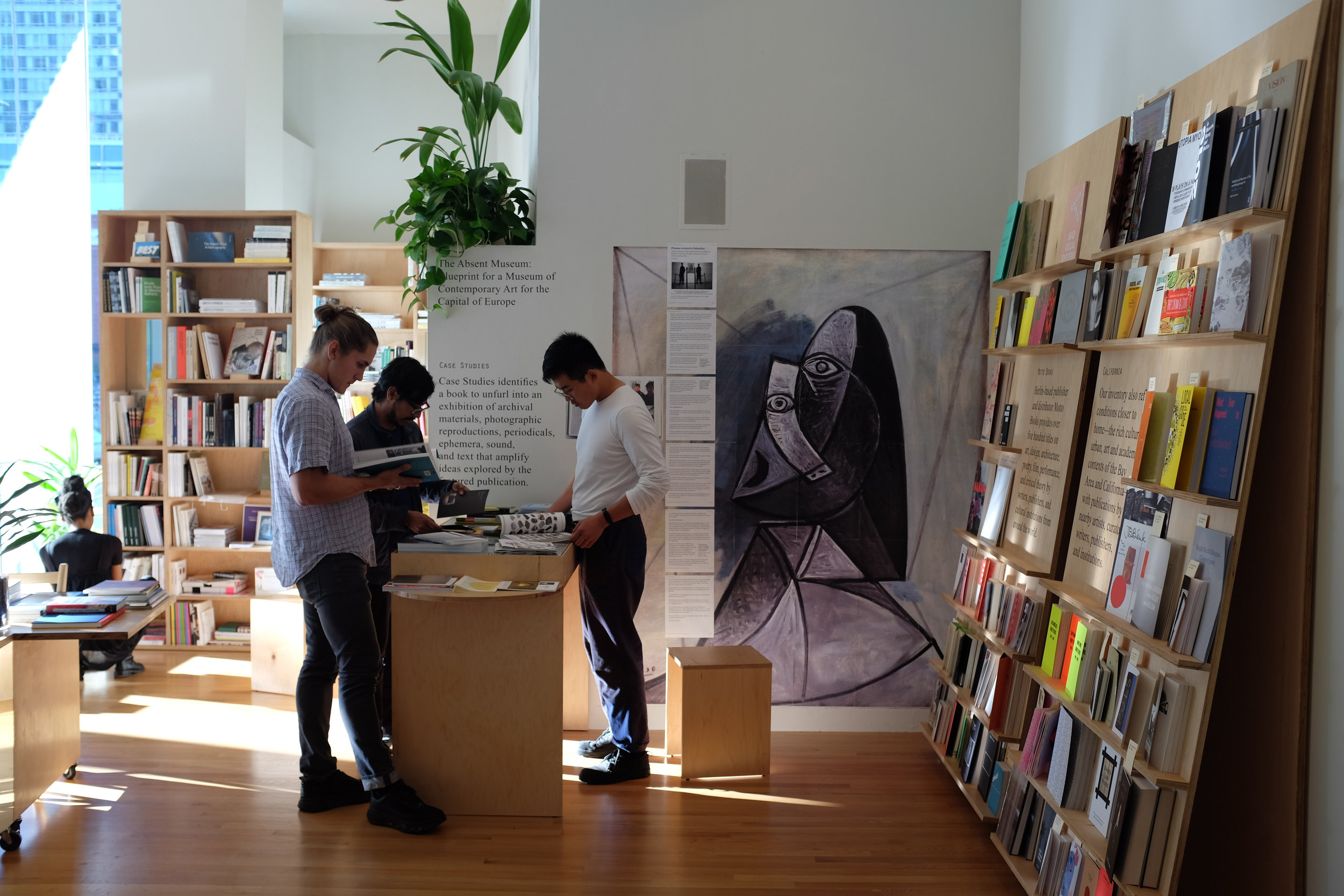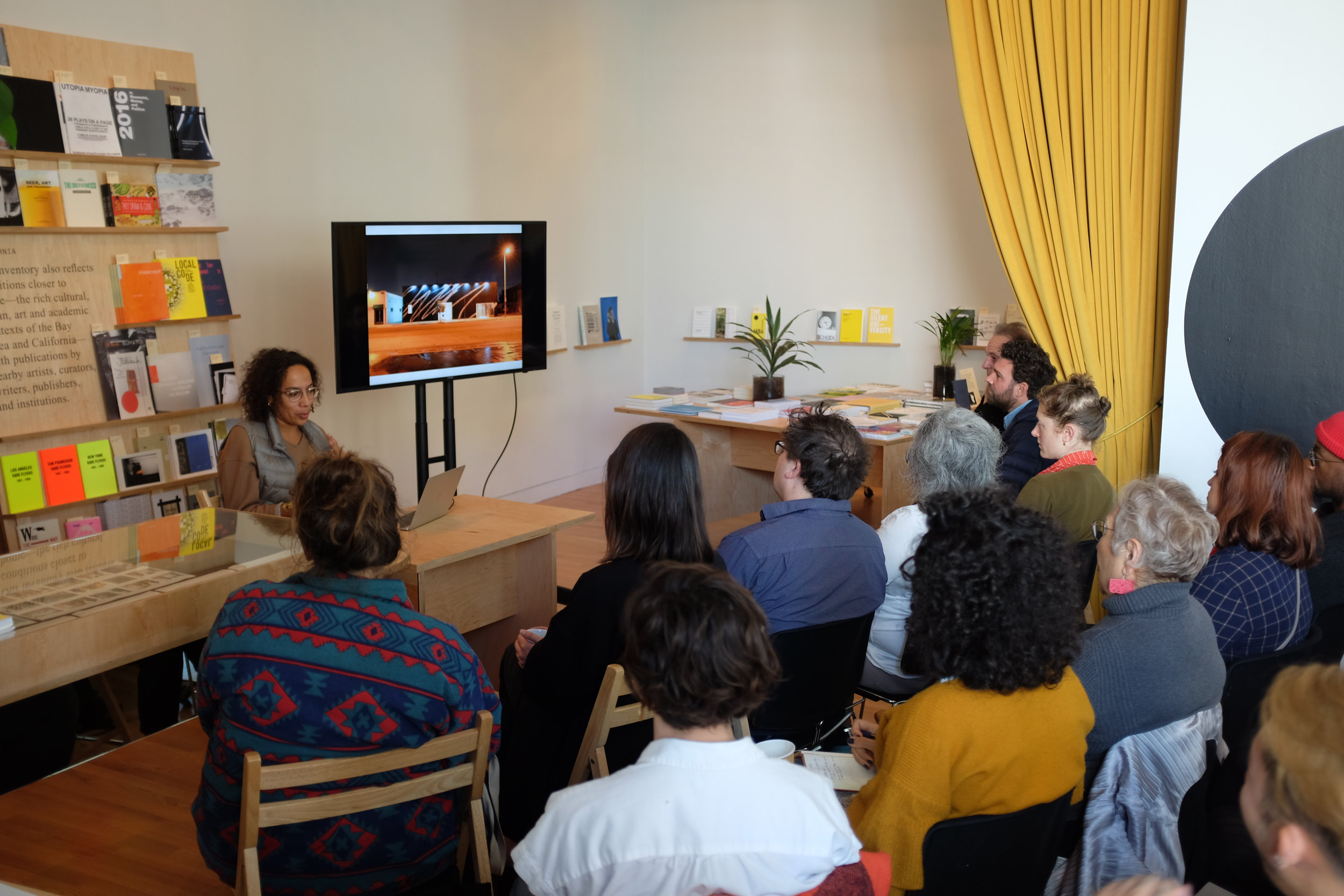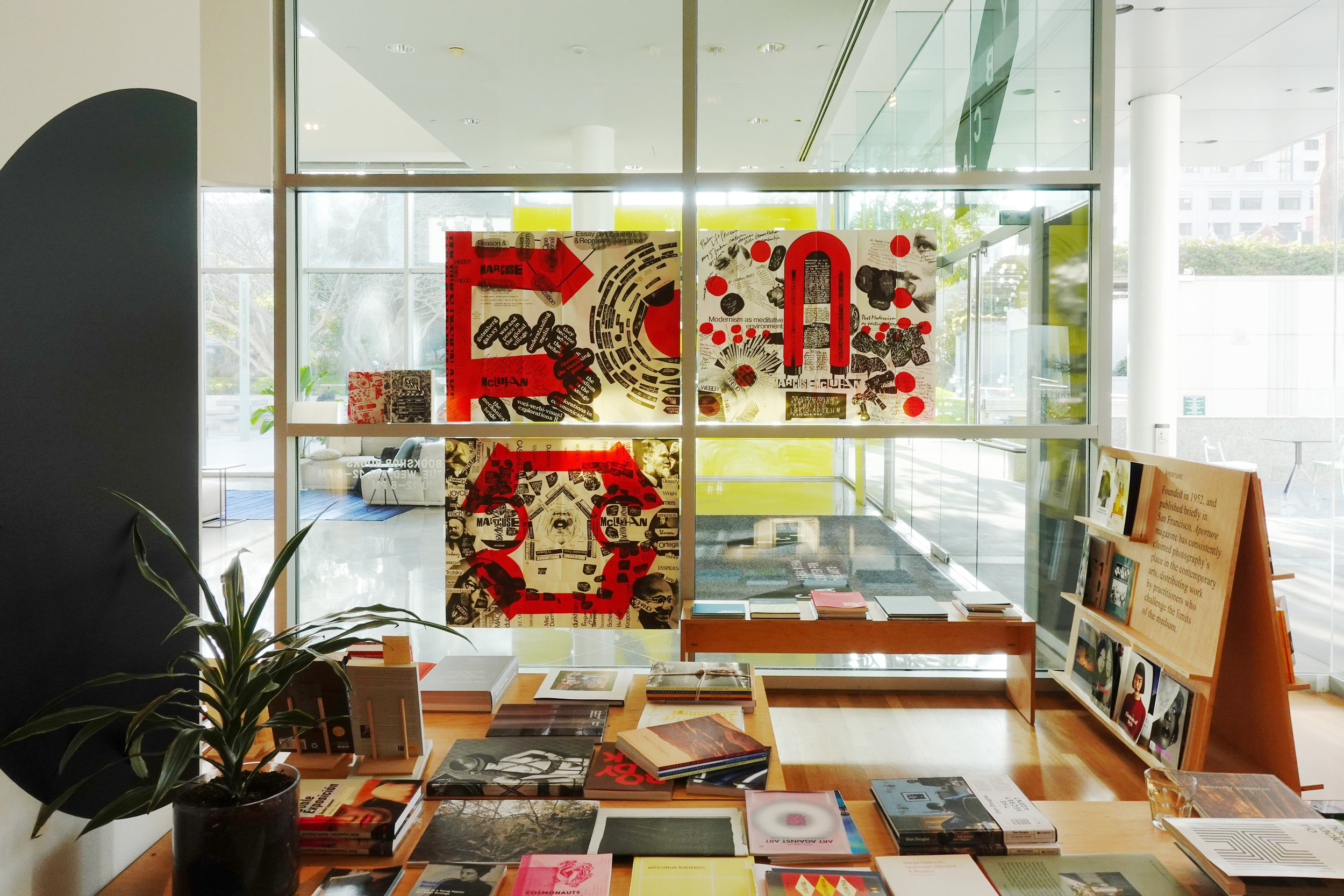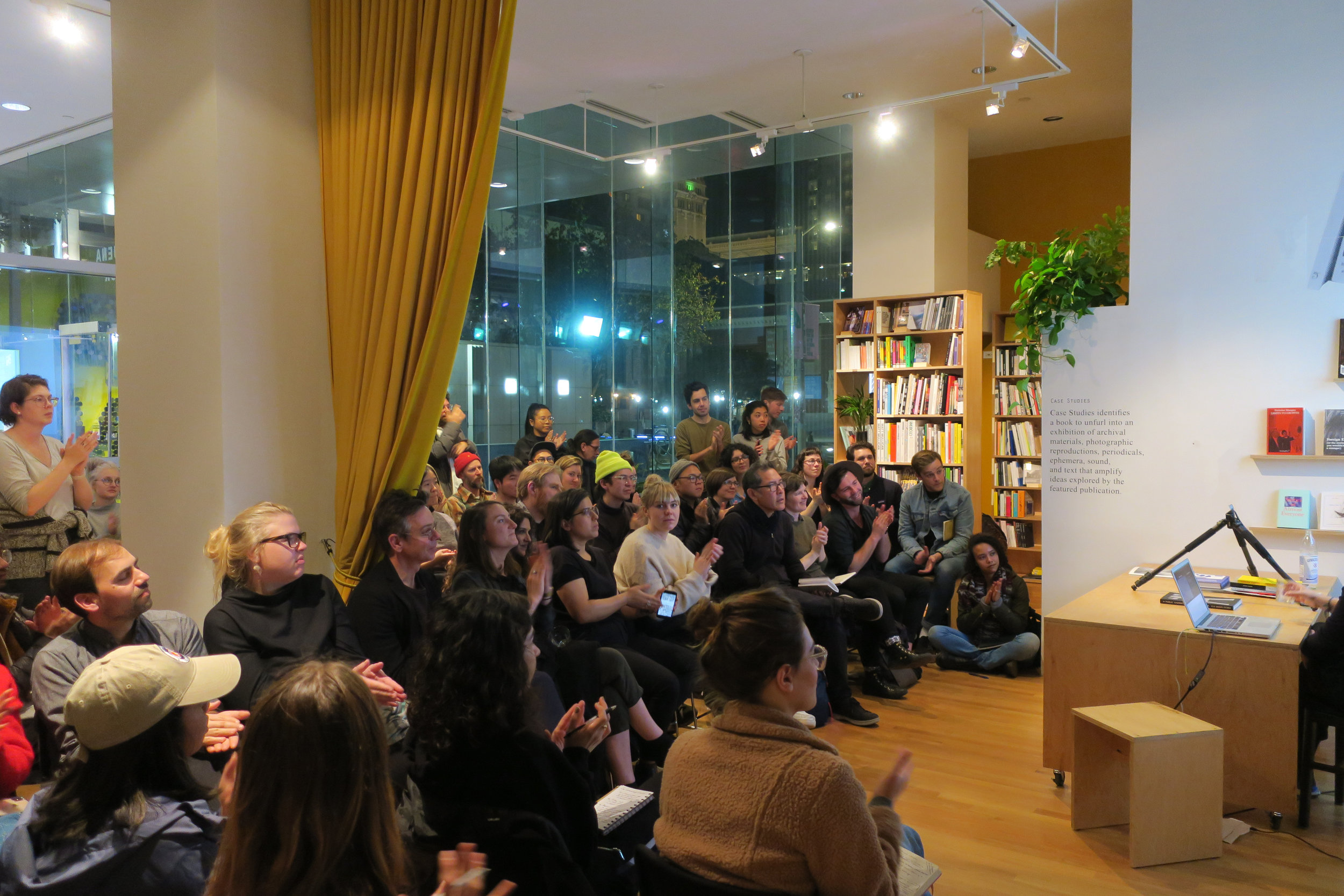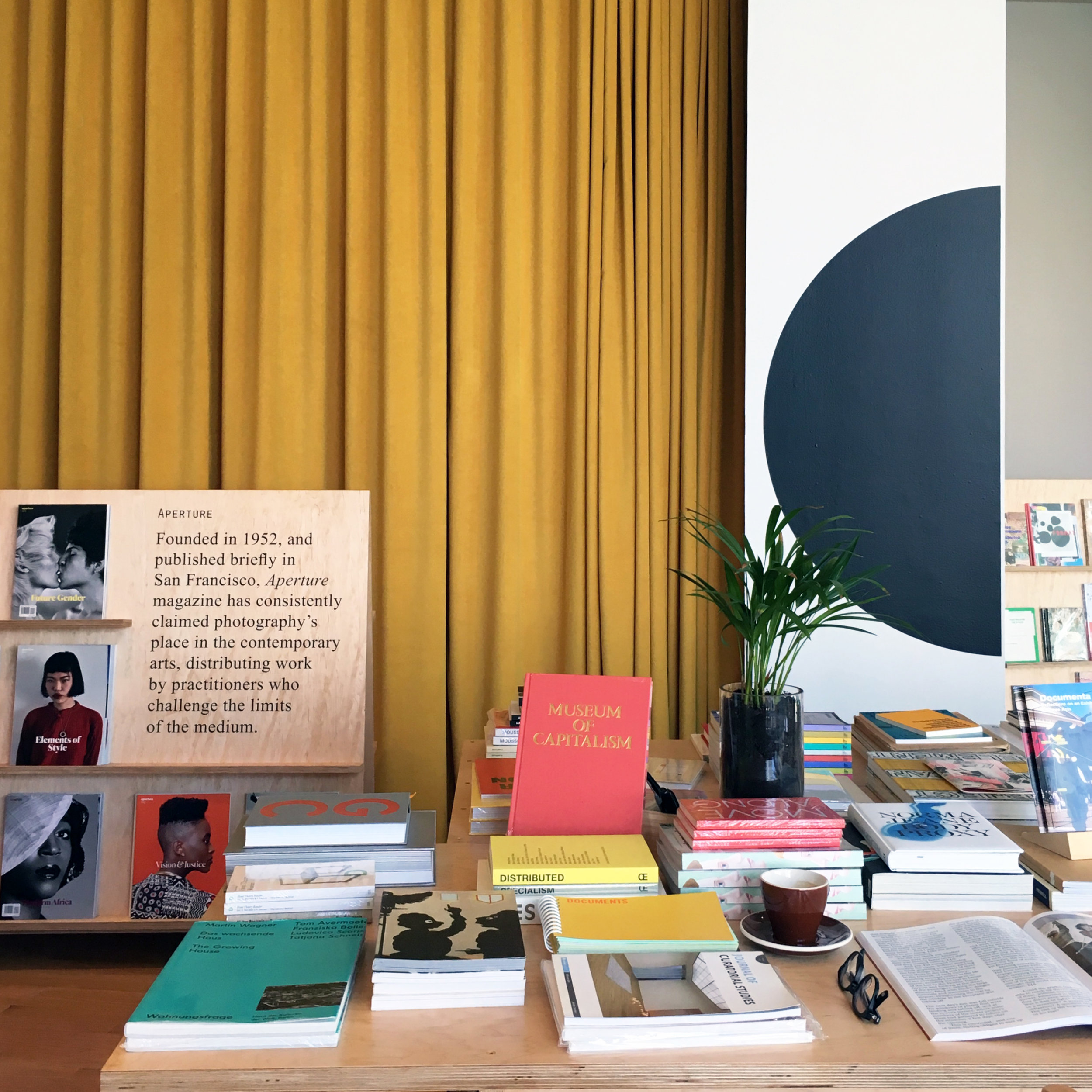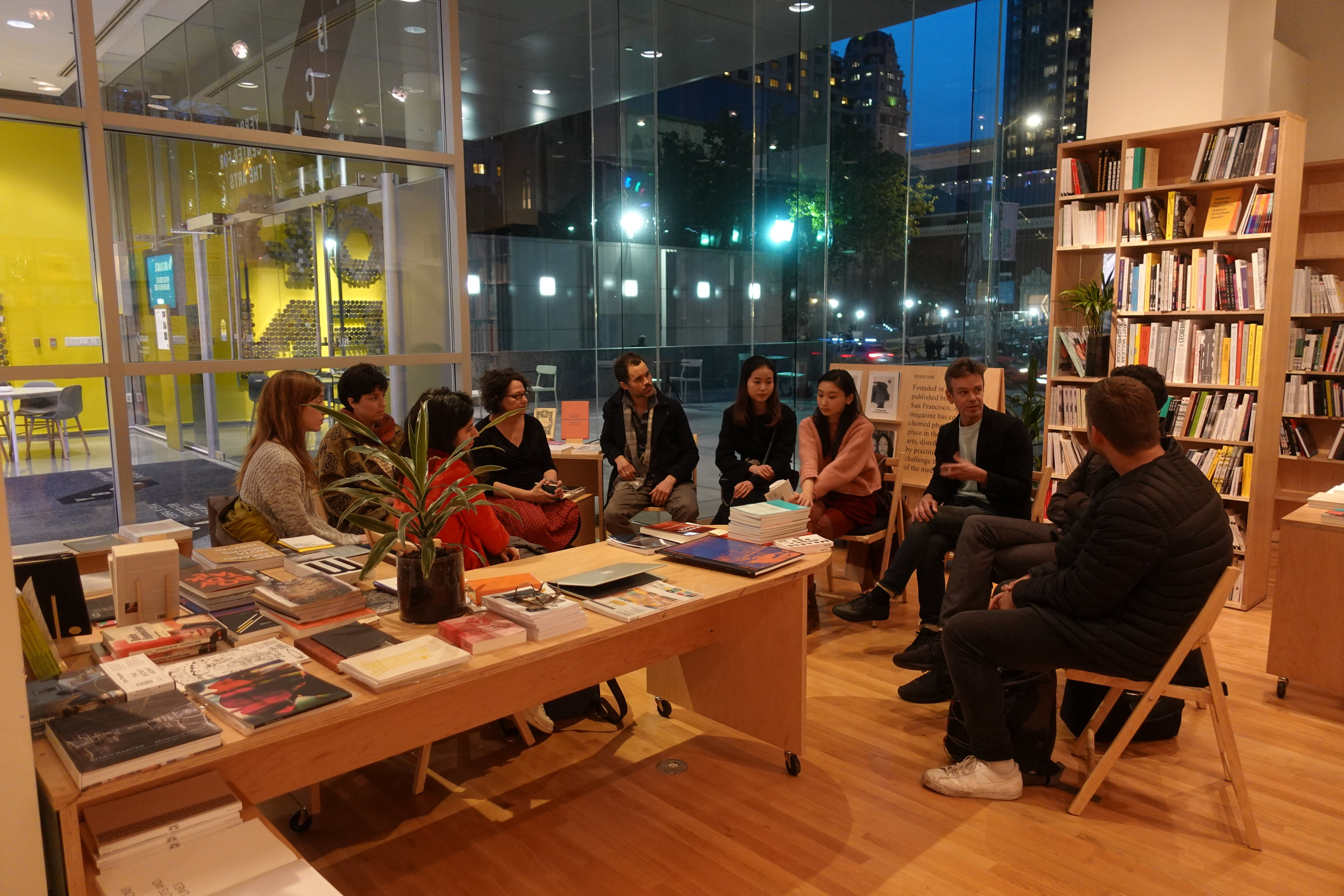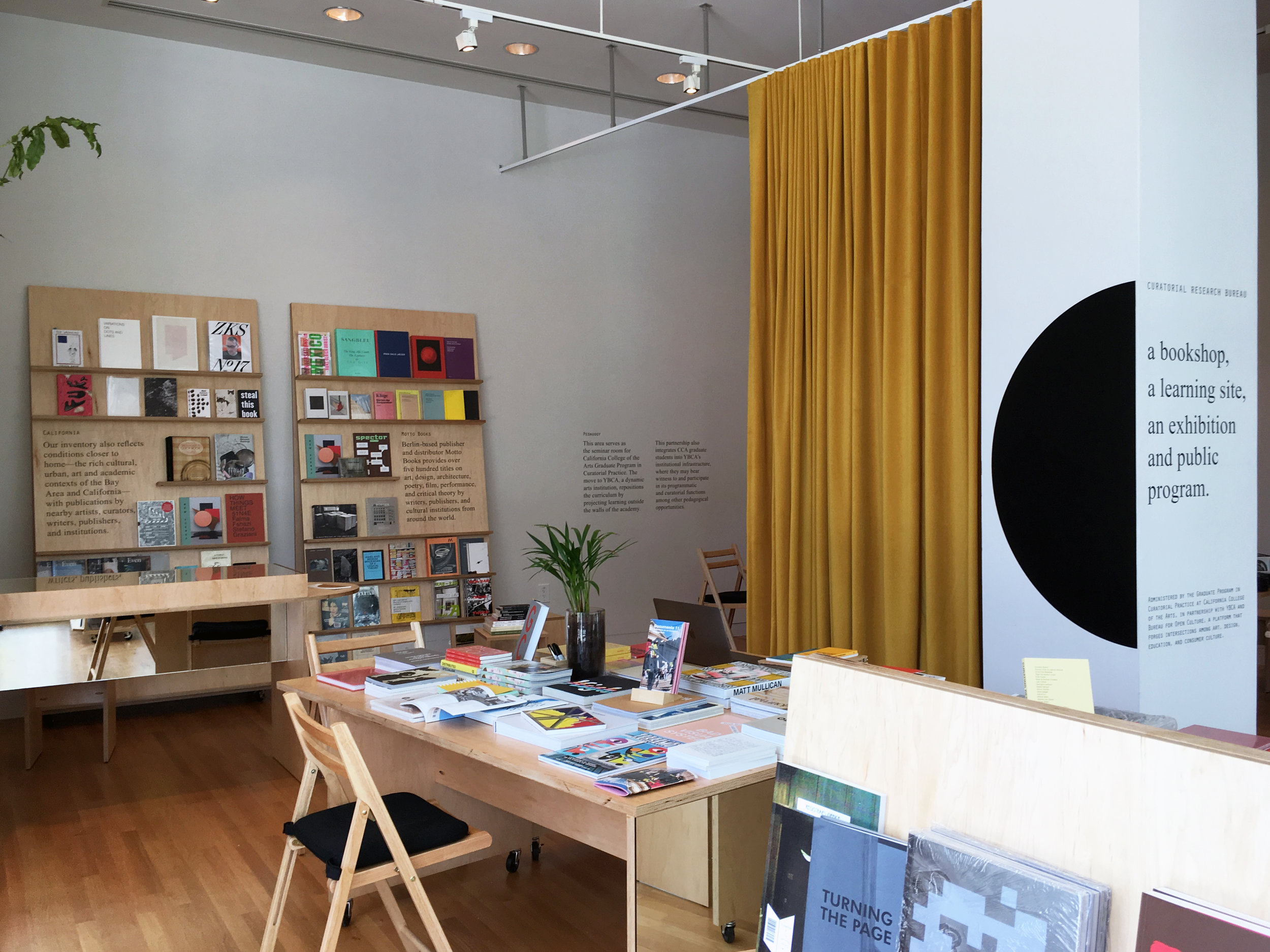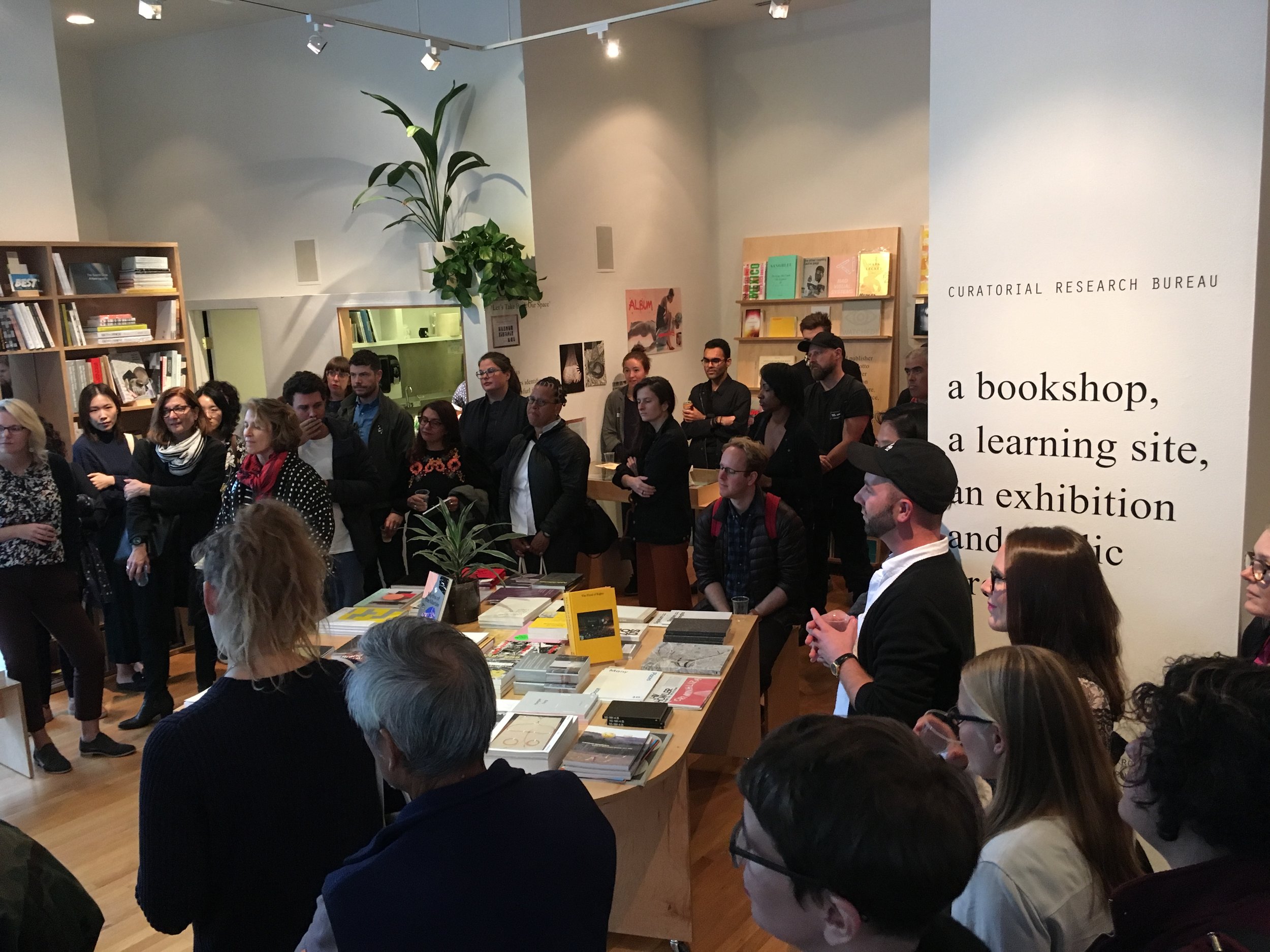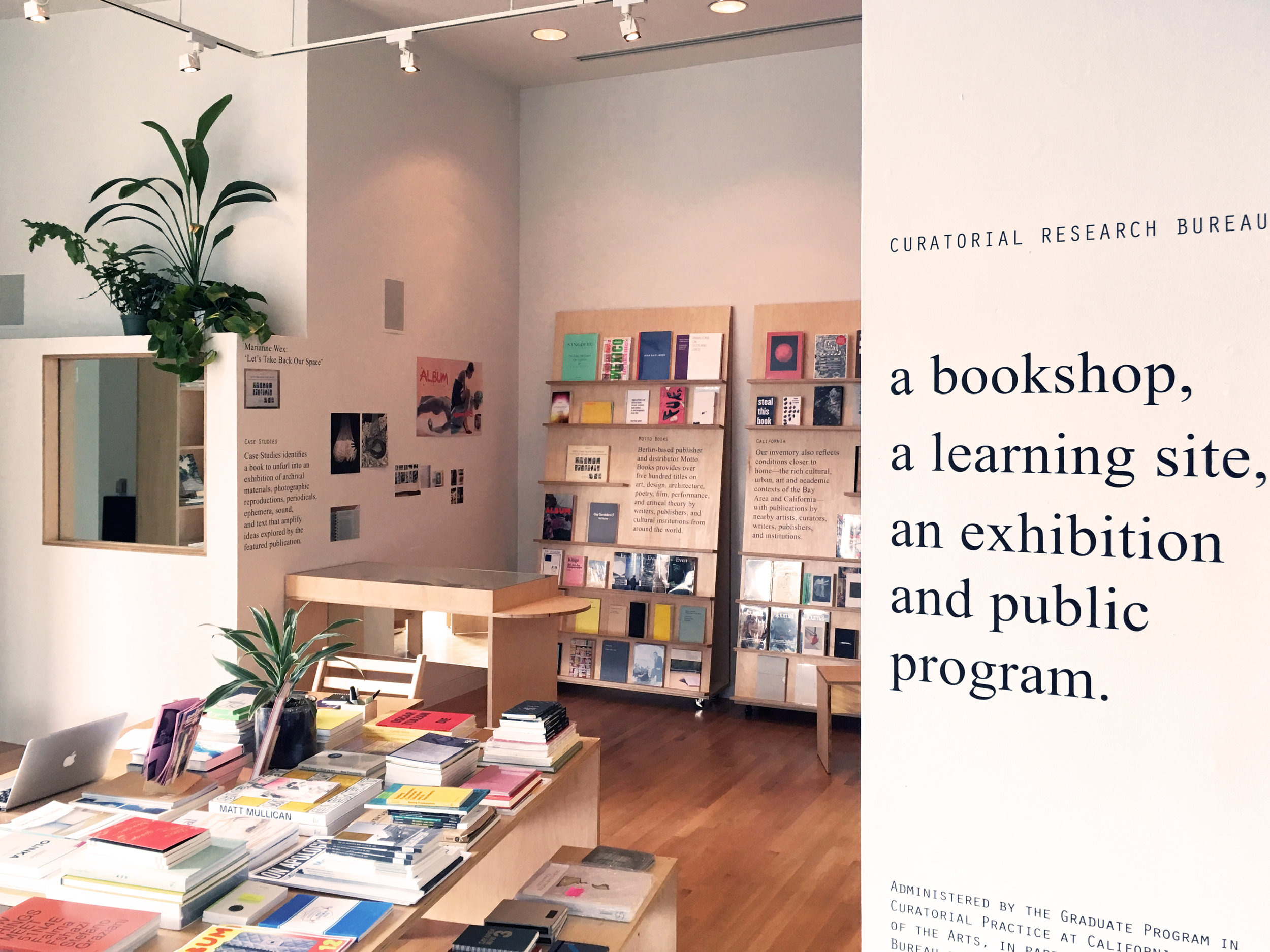Curatorial Research Bureau

A bookshop, learning site, exhibition and public program uniting education and consumerism inside a contemporary arts institution.
Directed by James Voorhies
Yerba Buena Center of the Arts
701 Mission Street
San Francisco, CA
September 4, 2018–May 8, 2020
Designed and built by Nate Padavick
Contributions by Ute Meta Bauer, Bik Van der Pol, Julia Born, Emmet Byrne, Yann Chateigné, Céline Condorelli, Janet Delaney, Allan deSouza, Elena Filipovic, Simon Fujiwara, Shoghig Halajian, Amanda Hunt, IN-FO.CO (Adam Michaels and Shannon Harvey), John Kelsey, Na Kim, Suzanne Lacy, Maria Lind, Nancy Lim, Josiah McElheny, Metahaven, Aleksandra Mir, Shahryar Nashat, Frances Richard, Sarah Rifky, Zoë Ryan, Barbara Stauffacher Solomon, Marianne Wex, among others
Made possible with funding and support from California College of the Arts and Yerba Buena Center for the Arts; realized within my responsibilities as Chair of the Graduate Program in Curatorial Practice at California College of the Arts
